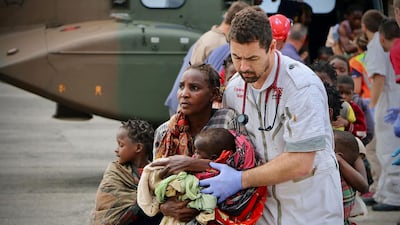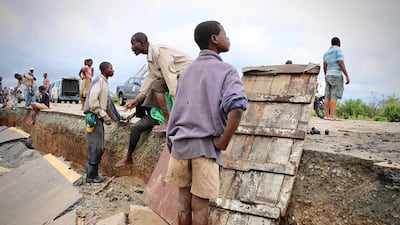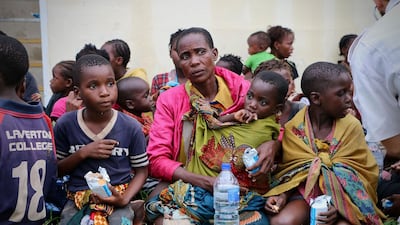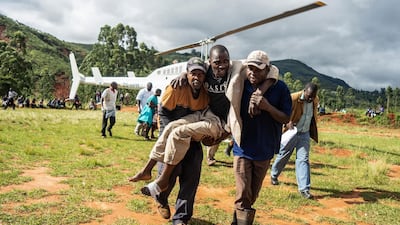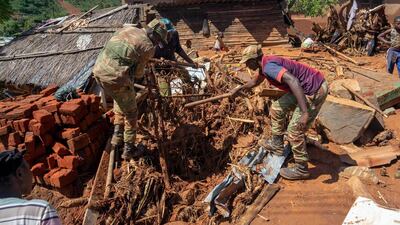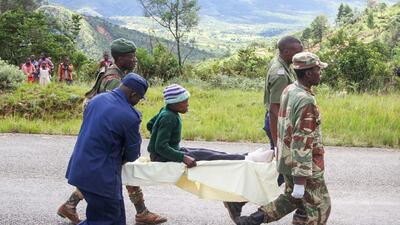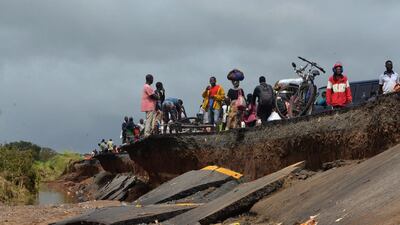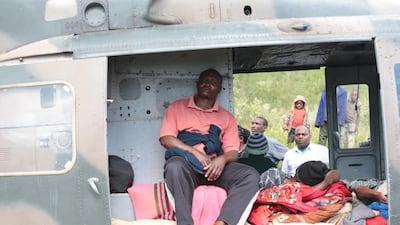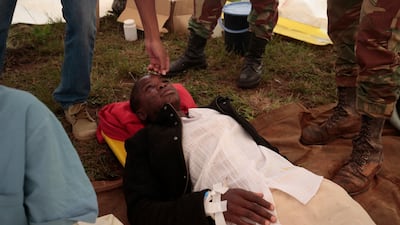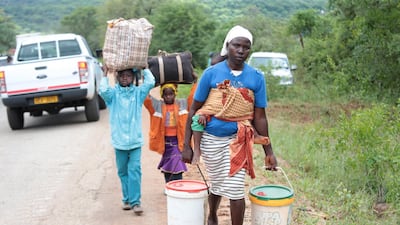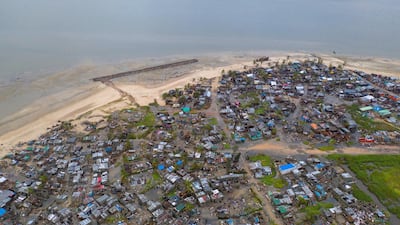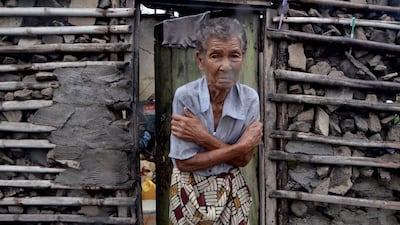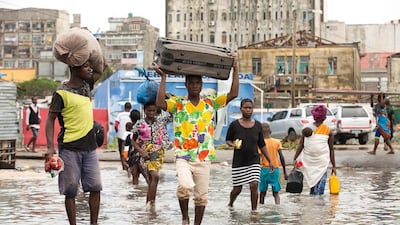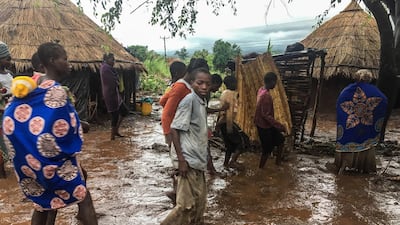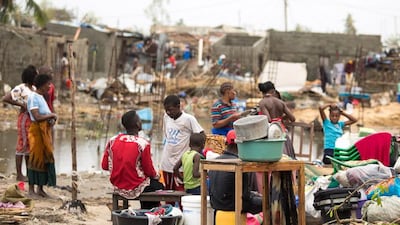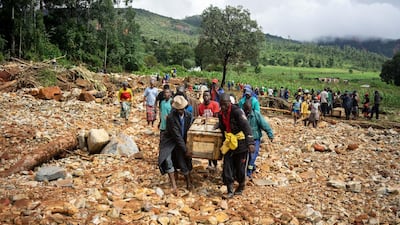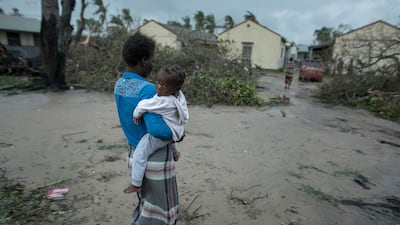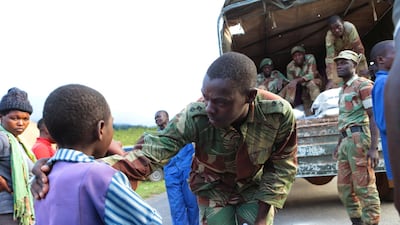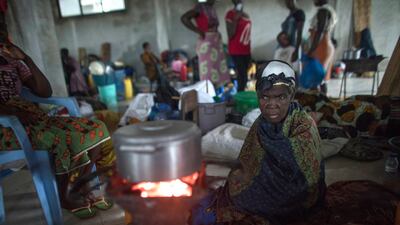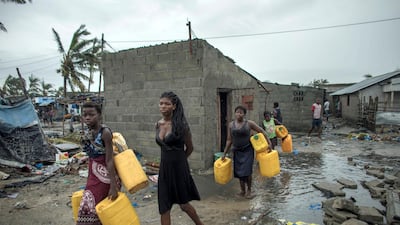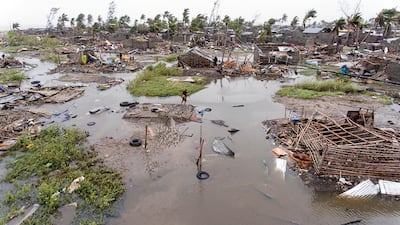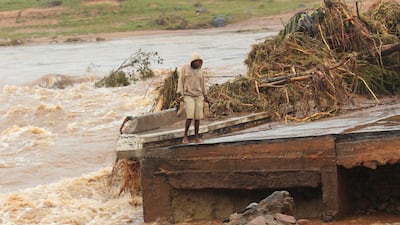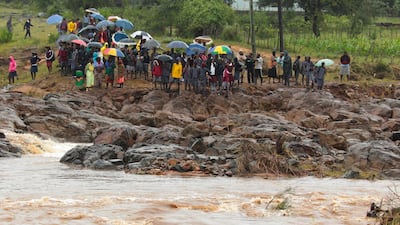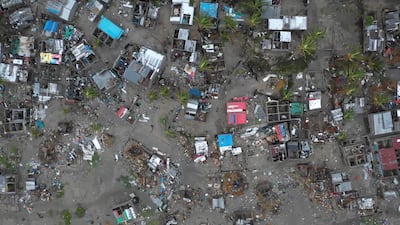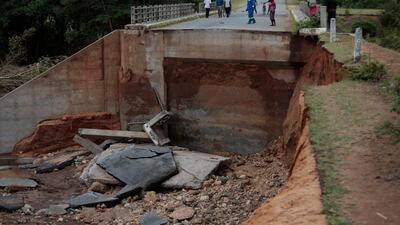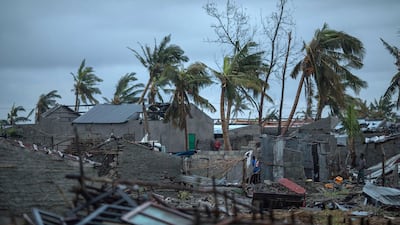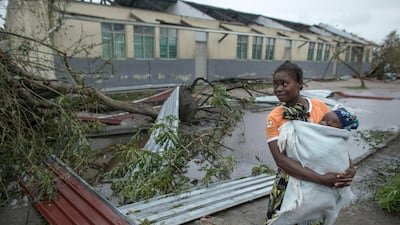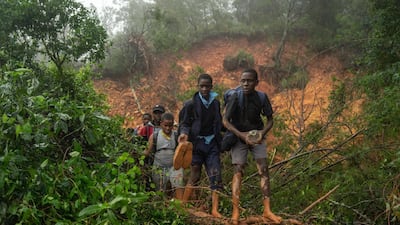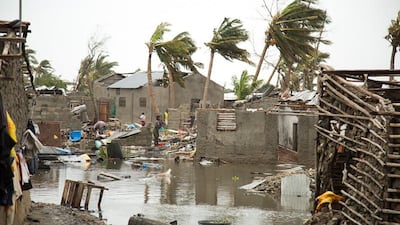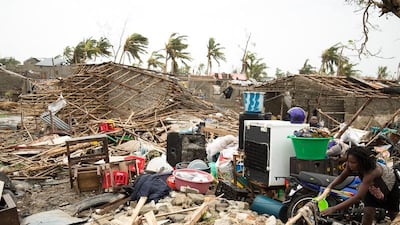The UAE will send Dh18.3 million in emergency aid to Mozambique, Zimbabwe and Malawi after Tropical Cyclone Idai tore through the African countries.
Rescue workers in Mozambique were racing against time to move people out of trees and off roofs on Tuesday as rain and powerful winds continued.
The monster storm swept through Mozambique before smashing into Zimbabwe.
Four days after Idai made landfall, flash floods have swept away roads and bridges in the two impoverished countries.
More than 1,000 people are feared to have died in Mozambique alone while scores have been killed and more than 200 are missing in Zimbabwe.
The UAE’s aid contribution consists of food supplies and supplements for children, medical supplies and shelter to assist 600,000 people in the three countries.
Delegations from the Emirates Red Crescent will travel to each of the affected nations and ensure the swift delivery of the emergency supplies.
The donation comes by order of Sheikh Mohamed bin Zayed, Crown Prince of Abu Dhabi and Deputy Supreme Commander of the Armed Forces.
Monitoring the situation will be Sheikh Hamdan bin Zayed, Ruler's Representative in Al Dhafra and chairman of the Emirates Red Crescent, the state news agency Wam reported.
Britain on Monday said it was giving £6m (Dh29.2m) in emergency aid to Mozambique.
'People are stranded in trees'
Emergency teams in central Mozambique steered boats in an inland sea of floodwater, rescuing survivors from treetops and roofs, even in the dead of night.
The South African military and the Mozambican army have sent their air forces to help save lives.
Rescue SA, a South African charity, said it saved 34 people since Friday night, using three helicopters.
"It is the only way to access the people that are stranded," the charity's Abrie Senekal told AFP.
Its team is having to make life-or-death decisions about who to save, leader Ian Scher said.
"Sometimes we can only save two out of five," Mr Scher said. "Sometimes we drop food and go to someone else who's in bigger danger.
"There's two issues at the same time: people stranded in trees, and people stranded on houses or new islands that have no food. We just save who we can save and the others will perish.
"In the trees, people have to fight with snakes, insects, wildlife."
President Filipe Nyusi on Monday said the Pungwe and Buzi rivers in central Mozambique had burst their banks and engulfed entire villages.
Mr Nyusi said communities were isolated by the floods and bodies were floating on the water.
"This is a real humanitarian disaster," he said. "More than 100,000 people are in danger."
Emma Beaty, co-ordinator of Cosaco, a group of charities, warned of the peril from dams filled to the brim by the floodwater.
"Some dams have broken and others have reached full capacity," Ms Beaty said. "They'll very soon open the floodgates.
"It's a convergence of flooding, cyclones, dams breaking and making a potential wave ... everything's in place so we get a perfect storm."
In neighbouring Zimbabwe, Idai left 98 dead and at least 217 missing, the Information Ministry said.
The most affected area is Chimanimani in Manicaland province, which borders Mozambique.
Families started burying their dead on Monday in damp graves, and survivors with injuries filled hospitals.
Military helicopters were flying people to Mutare, the largest city near Chimanimani.
The storm swept away homes and ripped bridges to pieces, leaving destruction that acting defence minister Perrance Shiri said "resembles the aftermath of a full-scale war".
Some roads were swallowed by enormous sinkholes, while bridges were ripped to pieces by floods.
"There's going to be a large amount of dead people," Mr Scher said. "The locals and the international community don't realise it yet but it will be huge."
